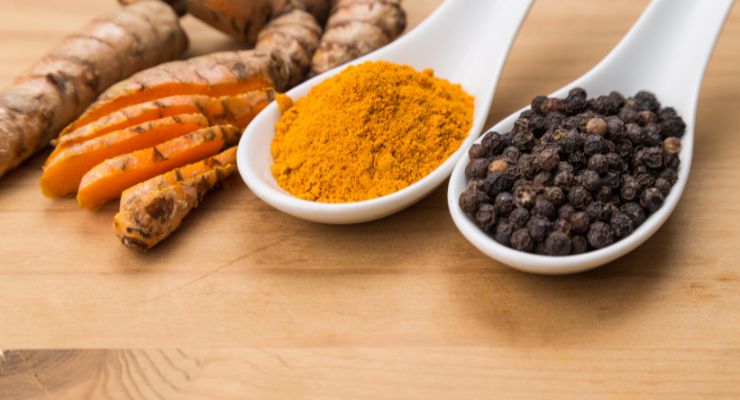05.08.23
Sabinsa’s Curcumin C3 Complex, a curcumin extract standardized to a 95% curcuminoids content, was the subject of two separate studies evaluating its potential to benefit older populations.
In a pilot study published in the Journal of Frailty and Aging, C3 complex was assessed for its role in improving physical function and strength in a population of 17 older adults with an average age of 79.4 years. Compared to placebo, supplementing with C3 Complex at a dose of 1,000 mg daily resulted in significant improvements to knee extension and flexion peak torque.
Reduced muscle strength is linked to impaired mitochondrial function, systemic inflammation, and oxidative stress. The authors hypothesized that muscle strength improvements may have been related to previously-established inflammatory-modulating benefits of C3 Complex. No side effects were reported across the population.
In the second study, appearing in Nutrients, 16 overweight or obese postmenopausal women were administered either a placebo or a bioactive yogurt containing Curcumin C3 Complex and chlorogenic acid. Compared to placebo, there was a significant decrease in the inflammatory market TNFa quickly after treatment. TNFa may be involved as a low-grade stimulus of osteoporosis and metabolic dysfunction which arises out of estrogen deficiency, according to the authors. They hypothesized that higher amounts of active ingredients may be linked to more pronounced effects.
“The aging population needs supplements to help them stay healthy and socially active,” remarked Dr. Muhammed Majeed, founder and chairman of Sabinsa Corporation. “It is gratifying to see benefits of C3 Complex identified by these studies showing it may specifically support the health of older people.”
In a pilot study published in the Journal of Frailty and Aging, C3 complex was assessed for its role in improving physical function and strength in a population of 17 older adults with an average age of 79.4 years. Compared to placebo, supplementing with C3 Complex at a dose of 1,000 mg daily resulted in significant improvements to knee extension and flexion peak torque.
Reduced muscle strength is linked to impaired mitochondrial function, systemic inflammation, and oxidative stress. The authors hypothesized that muscle strength improvements may have been related to previously-established inflammatory-modulating benefits of C3 Complex. No side effects were reported across the population.
In the second study, appearing in Nutrients, 16 overweight or obese postmenopausal women were administered either a placebo or a bioactive yogurt containing Curcumin C3 Complex and chlorogenic acid. Compared to placebo, there was a significant decrease in the inflammatory market TNFa quickly after treatment. TNFa may be involved as a low-grade stimulus of osteoporosis and metabolic dysfunction which arises out of estrogen deficiency, according to the authors. They hypothesized that higher amounts of active ingredients may be linked to more pronounced effects.
“The aging population needs supplements to help them stay healthy and socially active,” remarked Dr. Muhammed Majeed, founder and chairman of Sabinsa Corporation. “It is gratifying to see benefits of C3 Complex identified by these studies showing it may specifically support the health of older people.”




























